VISION REDEFINED
Where Clarity Meets Care!
Our Specialties
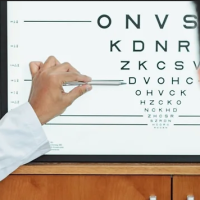
Low Vision aids
A significant visual impairment that cannot be corrected fully with glasses, contact lenses, medication or eye surgery is termed as low vision. It is caused by severe eye disease, in which visual acuity in the better eye is 20/70 or less, or where there is a significant loss of visual field (constriction to 20 degrees or less, termed tunnel vision).
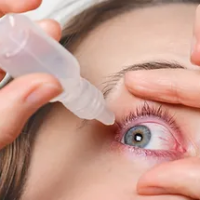
Glaucoma
In the more common forms of glaucoma there is increased pressure in the eye which presses on the optic nerve and causes a gradual loss of peripheral vision.
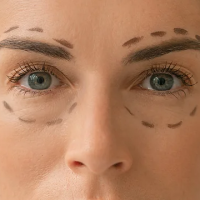
Orbit & Oculoplastic
Oculoplastic surgery is plastic surgery isolated to the areas around the eyes: the eyelids, orbit (bones behind the eye) and lacrimal (tear drain) system. An oculoplastic surgeon is an ophthalmologist who performs cosmetic and reconstructive procedures on the eyelids, orbit (bones and anatomic structures behind the eyeball) and lacrimal (tear drain) system.
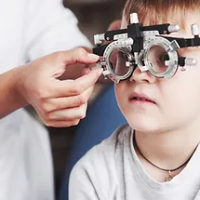
Pediatric ophthalmology
Children are not miniature adults. Their eyes, visual needs, and disorders are entirely different from those of adults. Since they are rapidly growing, and are yet to develop a fully mature eye-brain coordination, disorders of vision in children require special attention and focus. This is why this branch of Paediatric ophthalmology has evolved as a specialised discipline, and indeed a subspecialty in ophthalmology.
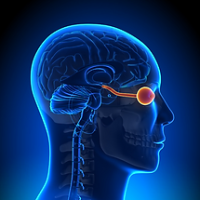
Neuro Ophthalmology
Neuro-Ophthalmology is a super specialty that merges the fields of neurology and ophthalmology. Neuro-ophthalmologists are responsible for the diagnosis and management of complex systemic diseases of the nervous system that affect vision, eye movements and alignment, as well as pupillary reflexes.
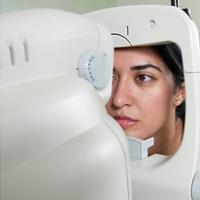
Community Ophthalmology
Community Ophthalmology of the Emerald eye hospital and Retina centre is involved in the activities like comprehensive primary eye care services, outreach eye camps in community as well as schools for the blind, school vision screening, low vision rehabilitation, and in epidemiological research and surveys, training and capacity building, community awareness and mobilisation apart from academic activities. Outreach services also include screening of diabetic retinopathy in the underserved populations.
